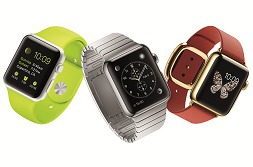A gap in the rechargeable battery market is creating an “enormous” opportunity for developers of next-generation charging technology in preparation of new wearable and IoT devices, ABI Research has claimed.
ABI has forecast the installed mobile devices base will hit eight billion by 2019 and said new battery and charging technologies are needed to accommodate the predicted explosion of new mobile and wearable technology over the coming years.
It further claimed that battery technology is not currently keeping pace with the increasing number of high-power devices reaching the market, which still rely on Lithium and graphite batteries and tethered one-to-one charging methods such as Micro USB ports.
ABI said this presents a huge opportunity for those in the charging market to produce next-generation battery technologies in anticipation of such devices, such as the silicon anode and “pure Lithium” battery variants already in production.
Nick Spencer, Senior Practice director at ABI, said: “The opportunity is enormous. ABI Research estimates that the average advanced market home has over 10 untethered devices with rechargeable batteries today. The growth in wearables driven by the likes of Samsung and now Apple will increase this number further, along with the Internet of Things, and even electric cars.”
Further, the increasing number of devices supporting wireless charging will drive the market for multi-device charging mats and “more subtle” charging methods, such as ambient and dedicated beamed radio frequency energy.
Spencer commented: “Mobile device hardware, software, and usage have developed at an incredible rate in recent years, [and] end user’s reliance on their smartphones also grows and grows.
“[However] battery life and charging technology has been a laggard to date. Short battery life remains the biggest irritation to smartphone users and is a clear opportunity for handset vendors and carriers to improve the user experience by adopting new, longer-lasting battery technologies.”
Read more:
Smart wearables market to quadruple thanks to cheap software


